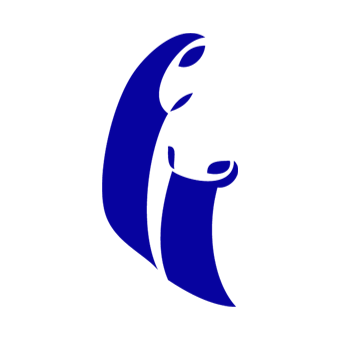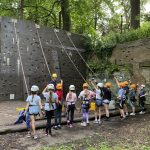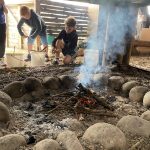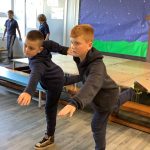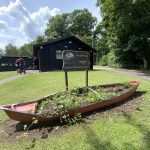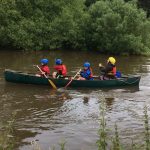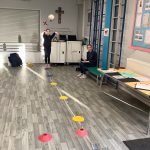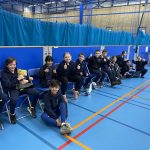Introduction
A high-quality physical education curriculum inspires all pupils to succeed and excel in competitive sport and other physically-demanding activities. It should provide opportunities for pupils to become physically confident in a way which supports their health and fitness. Giving the children of St. Bernadette’s opportunities to compete in sport and other activities builds character and helps to: embed values such as fairness, respect; develop resilience; and appreciate the outdoors.
At St. Bernadette’s, PE is taught as a twice-weekly hour long session: games, gymnastics and dance are all taught by class teachers who follow our PE scheme- the Primary PE Passport. Swimming is taught to children in KS2 by class teachers and external swimming coaches in termly blocks at our local leisure centre.
Aims
Good Physical Education teaching aims to support children to:
-develop competence to excel in a broad range of physical activities,
-are physically active for sustained periods of time,
-engage in competitive sports and activities,
-lead healthy, active lives.
The National Curriculum for PE:
In Key stage 1, pupils should develop fundamental movement skills, become increasingly competent and confident and access a broad range of opportunities to extend their agility, balance and coordination, individually and with others. They should be able to engage in competitive (both against self and against others) and co-operative physical activities, in a range of increasingly challenging situations.
Pupils should be taught to:
-master basic movements including running, jumping, throwing and catching, as well as developing balance, agility and co-ordination, and begin to apply these in a range of activities;
-participate in team games, developing simple tactics for attacking and defending;
-perform dances using simple movement patterns.
In Key stage 2, pupils should continue to apply and develop a broader range of skills, learning how to use them in different ways and to link them to make actions and sequences of movement. They should enjoy communicating, collaborating and competing with each other. They should develop an understanding of how to improve in different physical activities and sports and learn how to evaluate and recognise their own success.
Pupils should be taught to:
-use running, jumping, throwing and catching in isolation and in combination;
-play competitive games, modified where appropriate [for example, badminton, basketball, cricket, football, hockey, netball, rounders and tennis], and apply basic principles suitable for attacking and defending;
-develop flexibility, strength, technique, control and balance [for example, through athletics and gymnastics];
-perform dances using a range of movement patterns;
-take part in outdoor and adventurous activity challenges both individually and within a team;
-compare their performances with previous ones and demonstrate improvement to achieve their personal best.
Swimming and Water Safety
All schools must provide swimming instruction either in key stage 1 or key stage 2.
In particular, pupils should be taught to:
-swim competently, confidently and proficiently over a distance of at least 25 metres,
use a range of strokes effectively [for example, front crawl, backstroke and breaststroke],
-and perform safe self-rescue in different water-based situations.
Documents
- EYFS PE Medium Term Plan.pdf pdf3.1 MbDec 15th, 2022
- KS1 PE Medium Term Plan.pdf pdf3.8 MbDec 15th, 2022
- KS2 PE Medium Term Plan.pdf pdf8.9 MbDec 15th, 2022
- Whole School Long Term Plan PE.pdf pdf78.6 KbNov 17th, 2022
- Whole School Primary PE Passport Vocabulary Progression.pdf pdf63.0 KbFeb 14th, 2023
